Students and post-docs in spotlight at Grad School Research Day
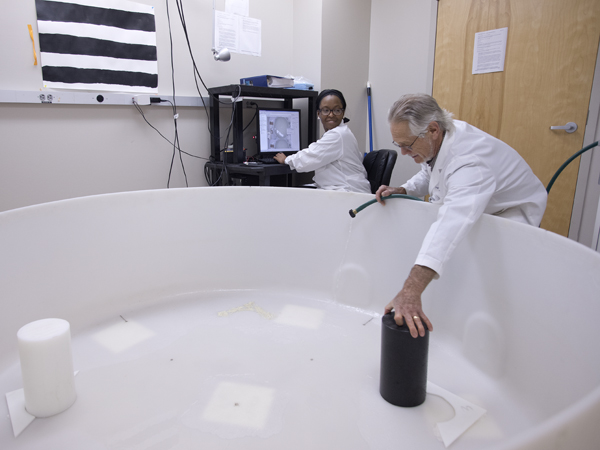
Published in News Stories on October 26, 2015
More than eighty graduate students and post-doctoral fellows presented their work at the annual Research Day on Friday, October 23. The event was sponsored by the school's Alumni Chapter.
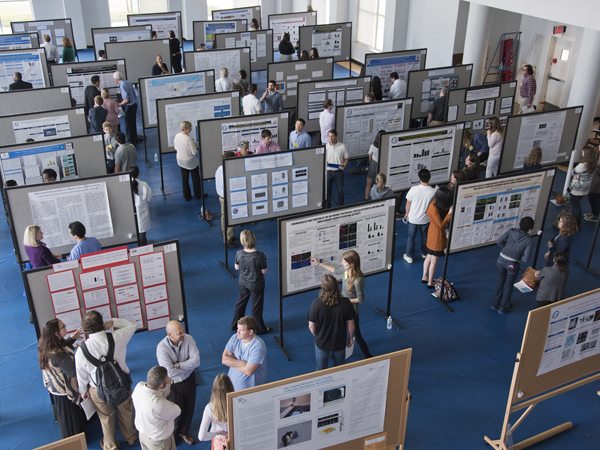
View of activities during the poster presentation during the School of Graduate Studies Research Day 2015
The morning began with breakfast and selected oral presentations from post-docs. The crowd then moved to the posters filling the Nelson Student Union gymnasium, where all presenters showcased their experience at UMMC.
“The purpose of Research Day is to highlight the outstanding biomedical research of graduate students and post-docs,” said Dr. Joey Granger, dean of the Graduate School. “These people are doing the day in, day out work in the labs.”
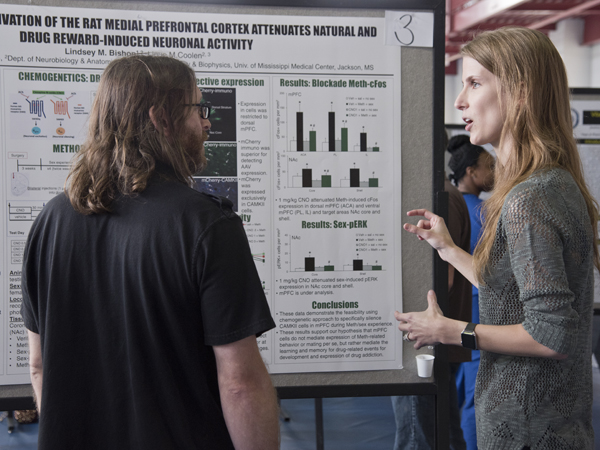
Bishop explains her research to Dr. Ryan Darling, associate professor of neurobiology and anatomical science.
Lindsey Bishop, a third year neuroscience PhD student, showcased her poster with red and green highlights. In her research, she tagged areas of rats' brains that were activated during experiments. She tested a technique called Designer Receptors Activated by Designer Drugs (DREADD) that she plans to use in future studies. Her goal is the “attenuation of compulsive drug seeking in male rats” - attempting to reduce drug dependency by shutting off certain neurons.
Research from the social sciences were also represented. Jennifer Stephen, a nursing PhD student who has worked for several years at UMMC, is developing an improved framework for assessing and treating pain in children. “You don't necessarily have high blood pressure, or a higher pulse, or cry and scream,” she said. “A lot goes into what [an individual] interprets as pain.” She used the session to get recommendations from judges on physiological markers to use in her work.
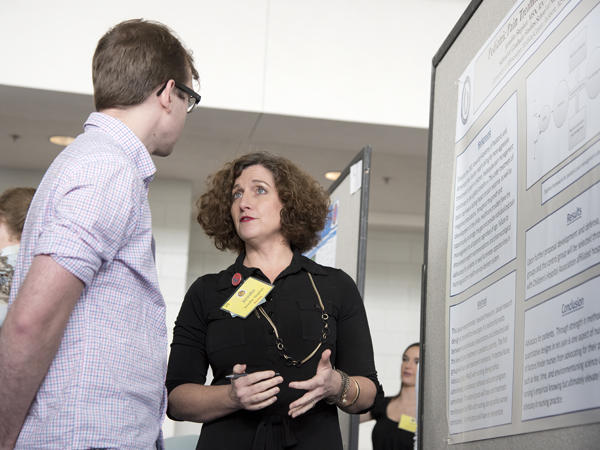
Stephen explains her research into pediatric pain control to Aaron Poole, a biochemistry graduate student.
Also present at the poster session were faculty and staff from the university's core services laboratories, which provide facilities and equipment for researchers. They were not judged but displayed the resources available for use.
During lunch, the Graduate School honored Dr. A.P. “Pete” Shepherd as the 2015 Distinguished Alumnus. Shepherd received his PhD in Physiology from UMMC in 1971 after “crossing the street” from his undergraduate institution, Millsaps College. He is a retired faculty member of the University of Texas Health Science Center in San Antonio. He also founded A-Vox Systems, Inc., a company where he and colleagues designed oximeters.
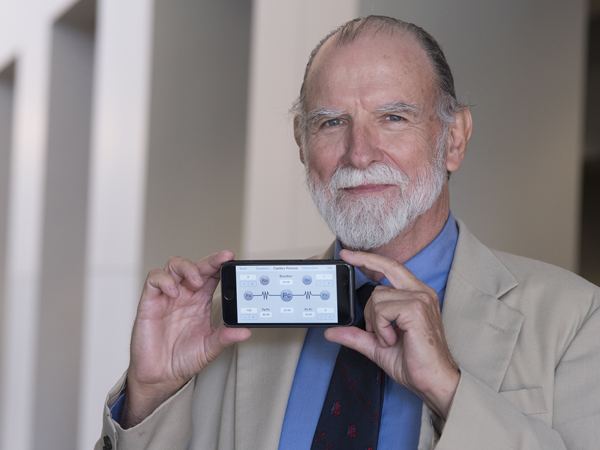
Shepherd displays Capillary Pressure app for iPhone.
“Your imagination is important to succeeding in science,” said Shepherd. He has used his imagination to receive five patents and build many computer programs for teaching physiology. One, his product Alveolar Gas, is available on the App Store. “I'm still teaching physiology but by remote control.”
Shepherd's products are used around the world in universities and hospitals. It didn't happen overnight; one of his many lessons for students was to “not take the first 14 'no's as an answer.”
Shepherd started at UMMC as a part-time assistant during summers, collecting wild mice for hemoglobin studies. His long career was shaped by several mentors, including Dr. Arthur Guyton and Dr. Harris Granger.
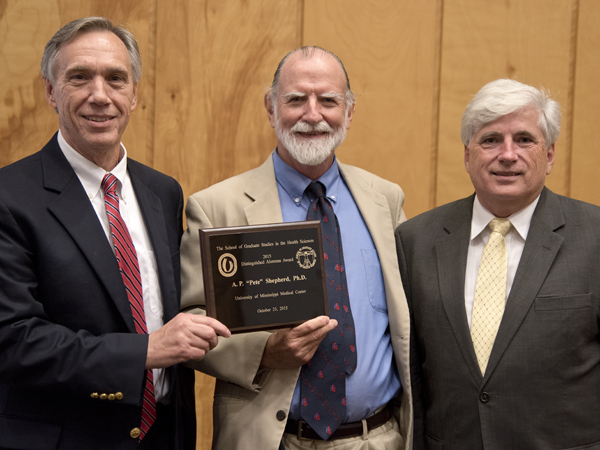
“It takes me back,” said Dr. John Hall, Guyton professor and chair of physiology, regarding Shepherd's remarks on their shared mentor. “I'm proud that he's a graduate of UMMC and the physiology department.”
“Dr. Shepherd is a perfect example of how grads can use the things they learn and apply knowledge to invent and improve people's lives,” Granger said. The talk fit well into the school's initiative to introduce graduate students to alternative careers tracks available to them outside academia.
To finish the event, ten graduate students and five post-docs received awards for best presentations of the day. Their research covered topics from pre-eclampsia to cancer to catfish immune systems and beyond, representing the diversity in the school's ten PhD and three MS programs.
Award winners included the following graduate students: Biochemistry: Pratirodh Koirala, Marija Kuna, and Kristin Shirey; Clinical Health Sciences: Gerri Wilson; Medical Pharmacology: Tarek Ibrahim; Microbiology and Immunology: Laura Blackmon; Neuroscience: Xu Hou, David Sandlin, and Courtney Stewart; Physiology and Biophysics: John Henry Dasinger.
Post-doctoral winners included the following: Cancer Institute: Tsui-Ting Ho, Swati Dhar, and Avinash Kumar; Pharmacology and Toxicology: Mark Cunningham; Physiology and Biophysics: Suttira Intapad.


